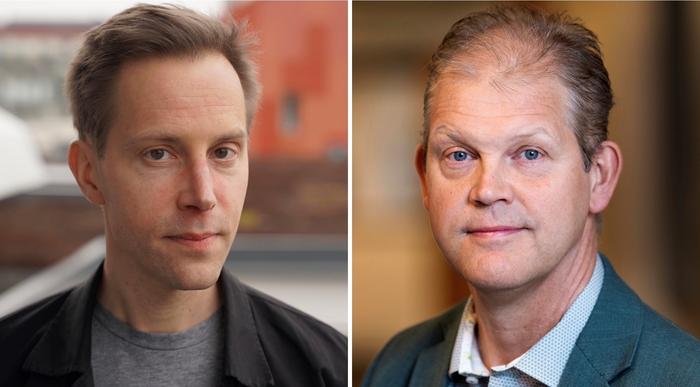Public sector should pay if EU demands efficient removal of pharmaceuticals from wastewaters, according to researchers at the Centre for Antibiotic Research, CARe, at the University of Gothenburg. Their argumentation analysis, published in the journal Public Health Ethics, raises important questions of responsibility.

Credit: Photo by Malin Franzén and Johan Wingborg.
Public sector should pay if EU demands efficient removal of pharmaceuticals from wastewaters, according to researchers at the Centre for Antibiotic Research, CARe, at the University of Gothenburg. Their argumentation analysis, published in the journal Public Health Ethics, raises important questions of responsibility.
As the use of medication increases, the problem of pollution and associated environmental impact grows as well. Pharmaceutical residues in urine and faeces are increasingly released into the environment via municipal wastewaters, posing risks to both public health and ecosystems.
Therefore, determining who should manage risks and bear the cost for more advanced wastewater treatment is a critical question. In the European Union, the guiding principle is that the polluter should pay, but researchers at CARe conclude that it would be more reasonable to let costs be borne by water consumers or taxpayers rather than pharmaceutical companies.
The European Union is expected to impose requirements for more efficient removal of pharmaceuticals at all major municipal treatment plants in Europe. Companies manufacturing medicines are often identified as those who should bear the cost, following the “polluter pays” principle. However, researchers at CARe highlight both ethical and practical limitations with this principle.
Who is the true polluter?
The core of the “polluter pays” principle is simple yet powerful: those causing pollution should bear the financial and administrative responsibility to counteract it. This not only encourages responsible behaviour, but it also seems fair that those contributing to creating a problem also contribute to its solutions. However, a crucial challenge is to identify the true polluter.
Pharmaceuticals are different from most other goods. Supranational systems approve them, states subsidize them, and regional councils and doctors decide on prescriptions before individuals can use them. Both society and individual consumers demand pharmaceuticals and thus contribute to emissions in different ways. Therefore, the justification for placing the burden of potential sewage purification solely on the manufacturer of a medicine can be questioned.
Significant societal consequences
If pharmaceutical companies are compelled to bear the costs of advanced sewage treatment, there is a substantial risk that, for purely economic reasons, they would rather refrain from selling medications in a given region. It is often challenging to replace a medication with a specific active substance with another more environmentally friendly one without jeopardizing patient benefit.
“The consequences of sales halts would, in many cases, be devastating for national healthcare. On average, it takes more than a decade for a new medicine to reach the market, and it often costs more than one billion euro. Developing ‘green’ pharmaceuticals is thus not a viable solution, except perhaps in the very long term,” says Professor Joakim Larsson, Centre director of CARe.
Balancing responsibility and sustainability
Researchers at CARe propose a hybrid framework to balance responsibility and sustainable pharmaceutical supply and usage. This framework combines the “polluter pays” principle with a “capacity principle,” according to which complex collective problems should be addressed by actors that have the financial and practical capabilities to handle them without causing excessively negative consequences for others. Within the hybrid framework, it matters less who causes the problem, and the focus is on solutions.
Upgrading sewage treatment plants to better remove pharmaceutical residues could then be a viable strategy. The importance of preserving access to clinically important medications justifies distributing the costs of upgrades among water consumers and/or taxpayers.
Journal
Public Health Ethics
DOI
10.1093/phe/phad012
Article Title
Pharmaceutical Pollution from Human Use and the Polluter Pays Principle
Article Publication Date
12-Jul-2023




